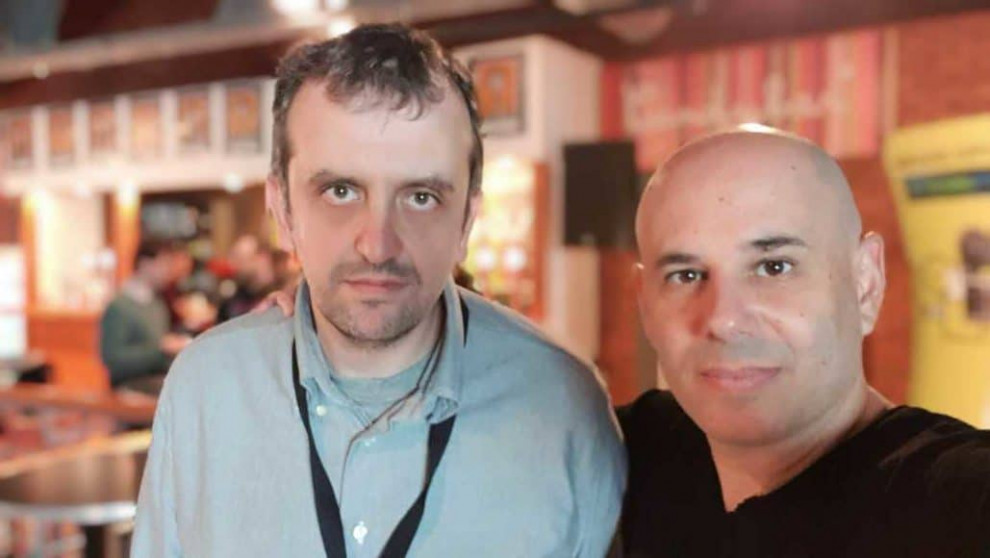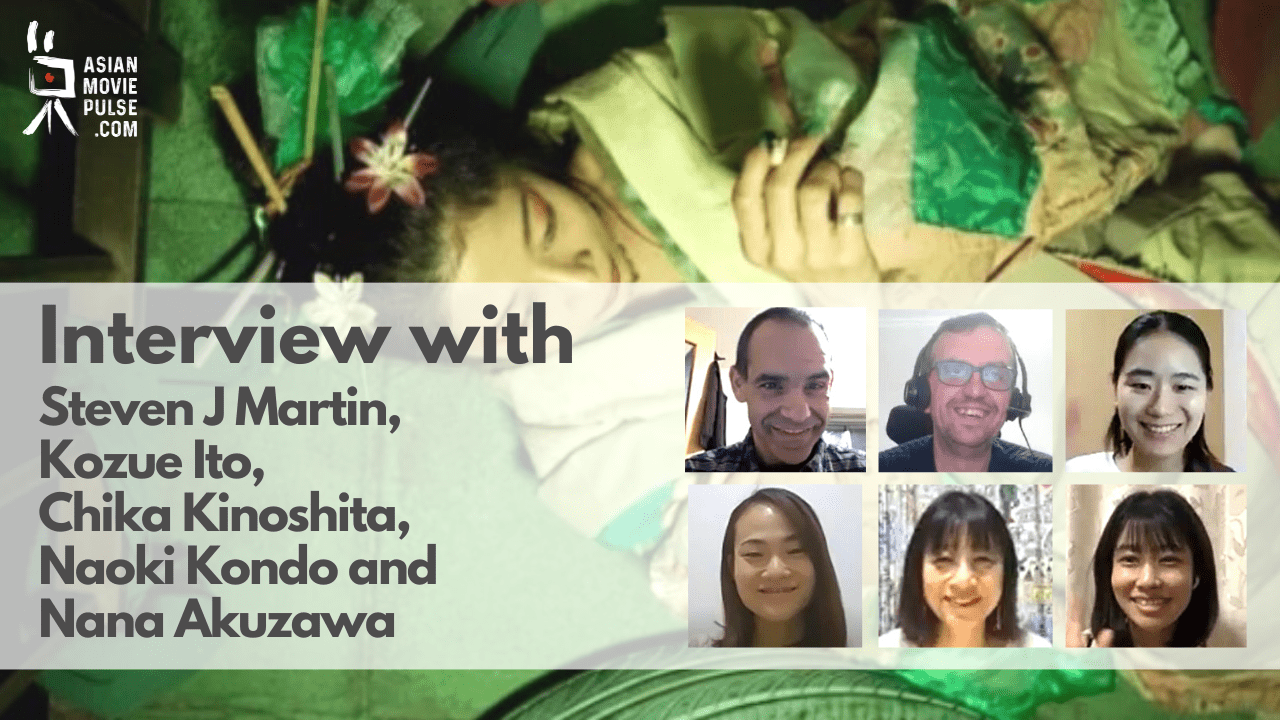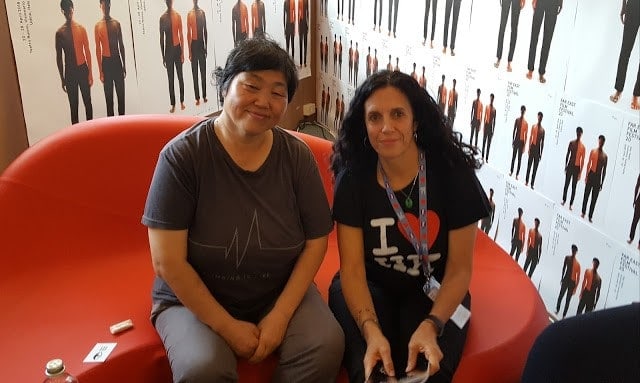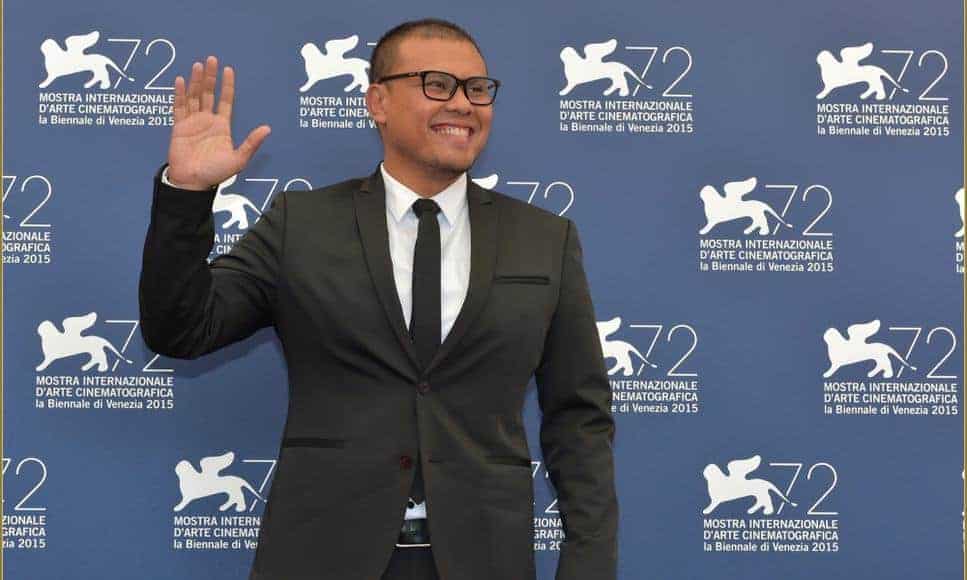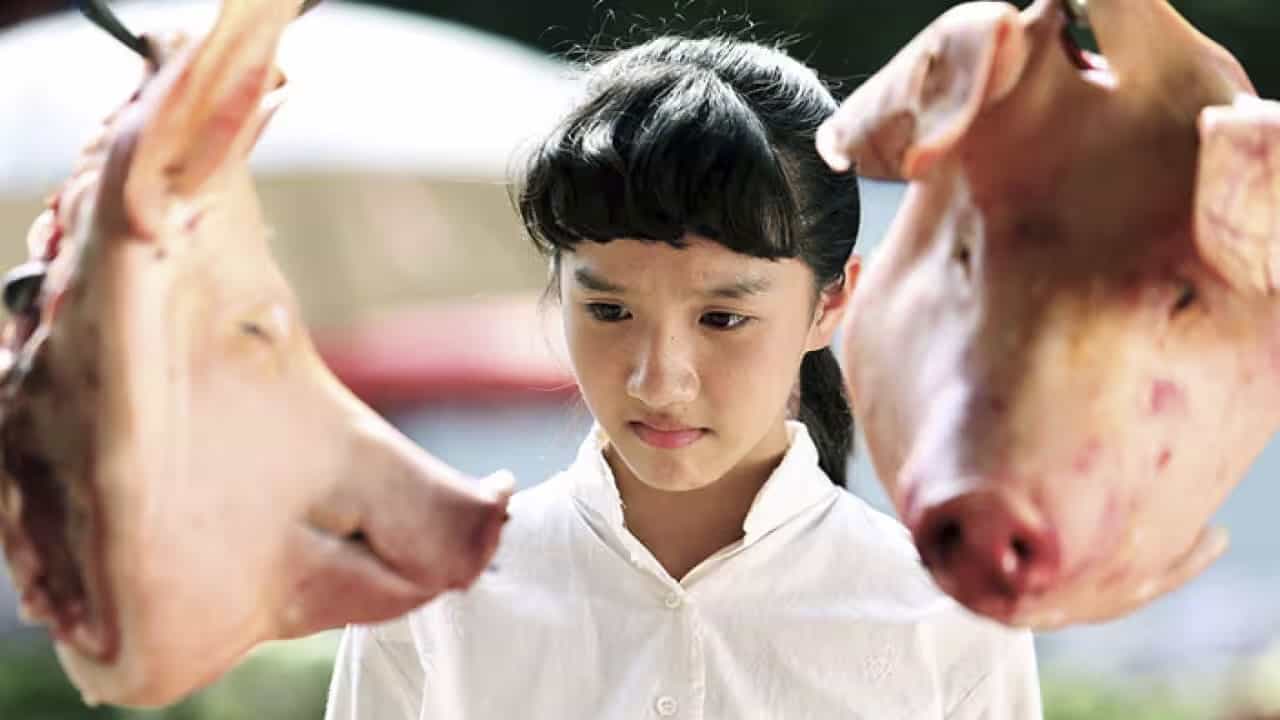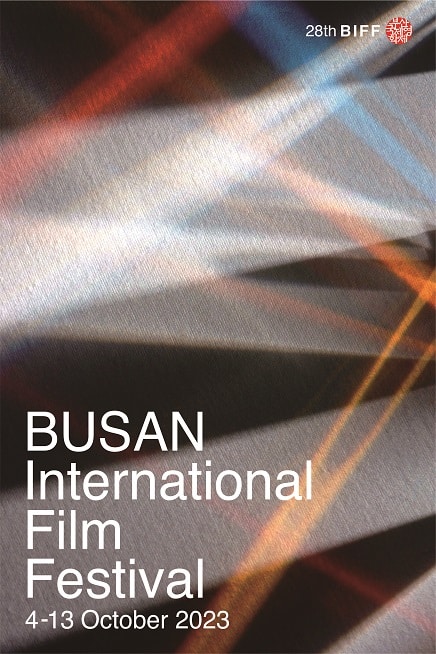Yaron Shani is a graduate of Tel Aviv University Film Department. His debut feature-length film Ajami was an Academy Award Nominee for Best Foreign Film and won fifteen international awards, including the Golden Alexander Award at the Thessaloniki International Film Festival. Over the last years, Shani has been working on his highly ambitious project Love Trilogy: Love Trilogy: Stripped premiered at the Venice Orizzonti section, while the second installment Love Trilogy: Chained premiered at the Berlinale Panorama.
On the occasion of “Chained” screening at Thessaloniki International Film Festival, we speak with him his unique procedure of filmmaking, the main protagonist, police tactics, perceiving the world and many other topics
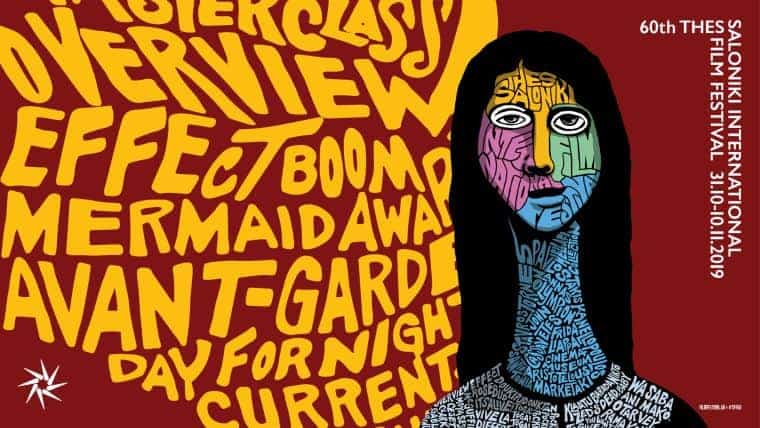
Can you tell me a bit about this unique procedure you implement regarding the acting aspect in your films?
Let's imagine a surprise party for your grandmother. Let's imagine it in a fiction film where you see actors performing as if they are surprised, as if they are happy, as if they are a family. And now, imagine that with your real grandmother, being really surprised. This is something I am trying to achieve, I am trying to grasp something that professional acting, professional script writing, professional directing cannot get. I am trying to get something which is very genuine and authentic and I am doing it by building up a story which is based on reality; like in a documentary, I am researching the life and I am building a story which is basically based on that, that could happen in real life. Then I go and find people who share a very deep connection with my ideas. Once I cast them, they change everything, the characters and the story because they show me who is the character.
Basically, the work is building the relationships of the characters. Let's say I cast you as somebody else's brother, so let's experience things that will make you feel like his brother. For example, you are acting as a bus driver in my film, we will go and you will work as a bus driver for a long period, in order to become this character. Then, basically, the shooting is like when everything is filled and you feel like you are someone's brother and you feel like you are working as a bus driver; then I just let you experience this reality. Imagine this reality which has one leg in reality and one leg in fiction. You don't get a script, you don't know what is going to happen, you are driving your bus and suddenly your brother comes into the bus. I just let you experience it and something magical happens, you don't need to be an actor in order to suddenly experience very profound feelings and emotions. I am documenting it in a certain documenting and fictional style. It is much more complicated and controlled, but is still like a documentary. Something that is not really happening, but emotionally, it is really happening. We were shooting for a year long, we got a lot of material, because it is something like actual living and then in the editing room, it is like writing the script from scratch.
So, everyone in the cast is non-actor?
Completely.
The protagonist was a former policeman?
Of course. If I am dealing with someone who is a policeman, if I was a professional script writer, or maybe playing the role of the professional script writer, I would go and talk to some policemen, and then I would invent a policeman, his language, his way of reacting, his job, his way of arresting people. And how to invent him? I would watch past films which are based on imagination and nothing else and I would try to build something completely interesting, which is completely fake. When you go into reality and you see how policemen really are, you can see how fake films are. So, what I am doing is bringing in a real policeman and giving him the space to be himself and he is teaching me what it means to be a policeman.

I felt that the main character is really unlikeable, maybe not from the beginning, but from the first scene with his daughter. Do you feel the same way about him?
Really? No, I do not. There are parts of him I love, parts of him I respect, parts of him I really dislike and parts of him I understand, but make me sad. I try to see all of my characters, even when they are doing terrible things, as my children, to see all their dimensions. I have to tell you that one of the interesting things with this kind of films is that some viewers really dislike the character, some fall in love with him and some are ambivalent. It is very personal, your feeling is subjective. And I understand where you are coming from, because he is a control freak, he wants to has his way all the time, but this shows that he is weak inside and this also makes you feel that he needs a hug and nobody hugs him. Also, you can see that he is really honest and straight and you can depend on him and he is a good guy because he is saving people like you and me in his everyday life. He has so many virtues that we respect in our culture but the same virtues can push things sometimes into terrible events. His nature is paradoxical.
Would you say that he is kind of a sociopath though?
No, no. A sociopath is someone who has real problem understanding that you are a human being. He has a problem with that, because he feels the need to control everybody, but he cares a lot. A sociopath does not care for anybody.
Can you explain the title in connection to the narrative?
It is complicated but basically “Chained” is trying to put light in one dimension of love which is the fact that when you are in love with somebody you become dependent to him or her. The more you are committed to this person, the more you are dependent and when this dependency becomes total, it becomes dangerous, it can involve violence, because what happens if this person becomes autonomous and starts acting against you? You would be devastated. So you need to control him or her and try to make them behave as you wish. You have it in every relationship, but if you get into trouble then you need more control in order to save yourself and it can get into a very disturbing place. This film is part of a bigger project, called “Love Trilogy”. Love in the sense that it is not only flowers and kisses and sunsets there are also dark sides of human relationships, this is one side of this connection between people.
The scene where he arrests the boys from the park, and eventually has them strip to check their underwear, is that standard procedure?
Yes, it is according to the law. I think it is all over the world. First, I need to say it again, I am trying to use as little creative freedom as possible, I am not bullshitting you. Everything that I show, I try to be as close to real life as possible; of course, sometimes real life is very complicated so I am showing just parts of it, but honesty is sacred in my filmmaking.
I am asking because I am trying to understand if the kid who accused him of sexual assault was telling the truth.
What do you think?
I think he might have gone a bit too far.
Actually, that is based on a real story and you think that the policeman went too far. But do you think that he sexually harassed them?
No.
No, somebody could say yes, that he used his authority, that the fact he made them strip is some kind of sexual harassment. But according to the law is not. He can use his authority if he believes you have drugs on you and he feels that you have stashed them in your underwear, he will take you to a place nobody sees you and he can order you to strip. If you refuse, then he can take you to the police station by force. And there he can force you to do that.

What is your opinion about police tactics in Israel, in general?
Look, the more I am involved with life and the more I explore life, I become less critical and more observant. I mean life is so complicated. It is very easy to criticize somebody else but you need to understand that when you criticize somebody else, you are building a very easy opinion about who he is and what is the nature of what happens. Like in politics, you have black and white perception of what life is. As an artist who is really committed to explore life and to say what I think about the world, I try to be humble, and just try to see and to understand all the dimensions of it. So, the policeman is part of the system, the system is based on the need to keep things in order. This is very very important, order is crucial for our survival. If I do not have someone to go to if you attack me, to help me, to protect me from you everything collapses and what you get a jungle where everyone eats each other. So this is very very important, but there is another side to it, because once I give this system the power to keep this order, I also give it the power to oppress me. And the policeman is a very small piece of the puzzle. I would say a policeman is doing a very hard job and I think only certain people can be policemen, good policemen and also comes with a very troubling side to it. We can talk about if for five hours but basically I have many dimensions and thoughts about police work and criticism and understanding them and I know it is also problematic, because sometimes power can be exploited in a wrong way. It is a very complicated answer.
When he goes back to his mother's house, she treats him again like he is a child, he even tells him off for not tidying up his room. Do you think that this is something that happens to all of us?
Yes, in many ways you have your child inside you and this child is alive in you in ways that you may even not be aware of. For example, I lost my parents recently, I became an orphan and it is amazing to realize and explore how much the child in me is still alive and to suddenly feel like the child lost his mother and father. The child is very crucial in my view, to the meaning of life and so the main character, when he is pushed to the limits, his inner child is there and we need to ask what this inner child went through to built this drama. This is something that is very important for me.
Did you want it to show that his mother is also like him, forceful?
I really think that many answers about who we are come from our childhood and our relationship with our parents. But I did not want to concentrate on that, I wanted to concentrate on the social effects of the human being. Rashi is an outcome of his childhood but also his adulthood. I wanted to concentrate on his adulthood. I have a lot to say about his parents and how he was raised, his connection to his family and how he perceives himself as a man, how his family affected that but I really wanted to put it on the side and not in the middle of the stage.
The scene which results in him getting kicked out of the house was very intense. Can you give some me more details about the way you shot that?
As I said, when we are working and we become very much attached to the characters and identify ourselves in situations, it is like a magical thing, you become completely devoted to it. And the fact that it is not you, it enables you to become, to bring things out into the open that in your real life you would have never dared. This is what happens to the stepdaughter, she is letting herself bring something which is very personal and unconscious in front the camera, which is a lot of anger about life, about the oppression of life about the need as a young woman to break out and to be independent and free, and feeling that the world is closing on her. The step father is symbolizing all this, he is playing the role of the reality and she is fighting, exploding. For me it was amazing, because I did not tell her to be angry. I did not tell her to curse to say this and that; it is a genuine flower that came out of her unconscious, and in this sense, these scenes are very real. Maybe in a sense, much more real than you see in a documentary.

So, through your procedure, it was easy for her to play that scene, despite the fact that it was very difficult?
In some sense because it is natural, it is not as if she is reading a script and she has to make it authentic. In that sense, it was very easy, but in another sense, she spilled her guts out, it is something most professional actors cannot do, cannot get there.
How was she after the scene?
This is my perception, this process in which the masks we put on every time we go out in the public are very suffocating, are very oppressive, they are locking us in a lie, in a fake nature. This fake connection to other people and to ourselves is a big issue. The fact that you are putting the mask of a character which enables you to take off all the other masks and to connect with something that you don't dare do in your life is very empowering and very freeing. It is like a big WOW.
You had two cinematographers in your film, Shai Skiff and Nizan Lotem. How was your cooperation with them?
Amazing. I was pretty much in trouble in the Israeli film industry because I took two young people who have never shot a feature before and the reaction was like, “What the hell?” But there was a good reason for my choice because professional cinematographers have hard time to work in the way I want to work, because everything is live so you need to build a new concept of what good cinematography is. It is not based on lighting design or constructing frame, it is built on being sensitive and observing what is in front of you. And to be sensitive not to go too close sometimes, to go back and sometimes to go in. It is like jazz, it is not like classical music. Most of professional cinematographers think that it is bad cinematography. Therefore, I had to take fresh people who are still open in order to work. And it is like improvising, they have to be like jazz players, to listen to the other instruments and go with it. I am watching the two cameras simultaneously and I am talking to them all the time, giving them advice on where to go and what to do. It is a very different way of filming.
Did they adapt easily?
No, not easily, it is very hard. First of all, you need to be a master in focus pulling and be able to stand still for a very long time. Technically, it is very hard but also emotionally, you need to be so concentrating in what is happening, in order to find the right place to be. It is very complicated. But I have to say, we shot for a year long, in the end they were very good.
How much time did you spend post-production?
Two years of editing. We had 350 hours of footage, but for the whole three films of the trilogy.
How is the situation with the Israeli movie industry at the moment?
It is very poor and maybe due to this fact, it is very bold.
No troubles with censorship?
Until a few years ago, nobody was bothering the film industry, because it was not really an industry, it was very poor and insignificant for the Israeli political realm. But in recent years, the right wing government, especially the Minister of Culture who understood that it was a ticket to build herself politically, to make this liberal, left-wing-dominated section a target. In the last 10 years, cinema became a target for right wing politicians and it is becoming, not censored, but more and more problematic to express political opinions which are very much against the mainstream.
When will the film open in Israel?
It will open in January.
What are your next plans, after the trilogy?
So many things… I really need to take some time off, there are so many books I want to read and so many things I want to learn and study and I need to rest also, because these were 7 tough years. But I feel that I have found a very profound tool to open up the doors of conscious. So, I should go some time in the near future and continue to explore life with these tools, this method of making fiction with authentic emotions and characters.


